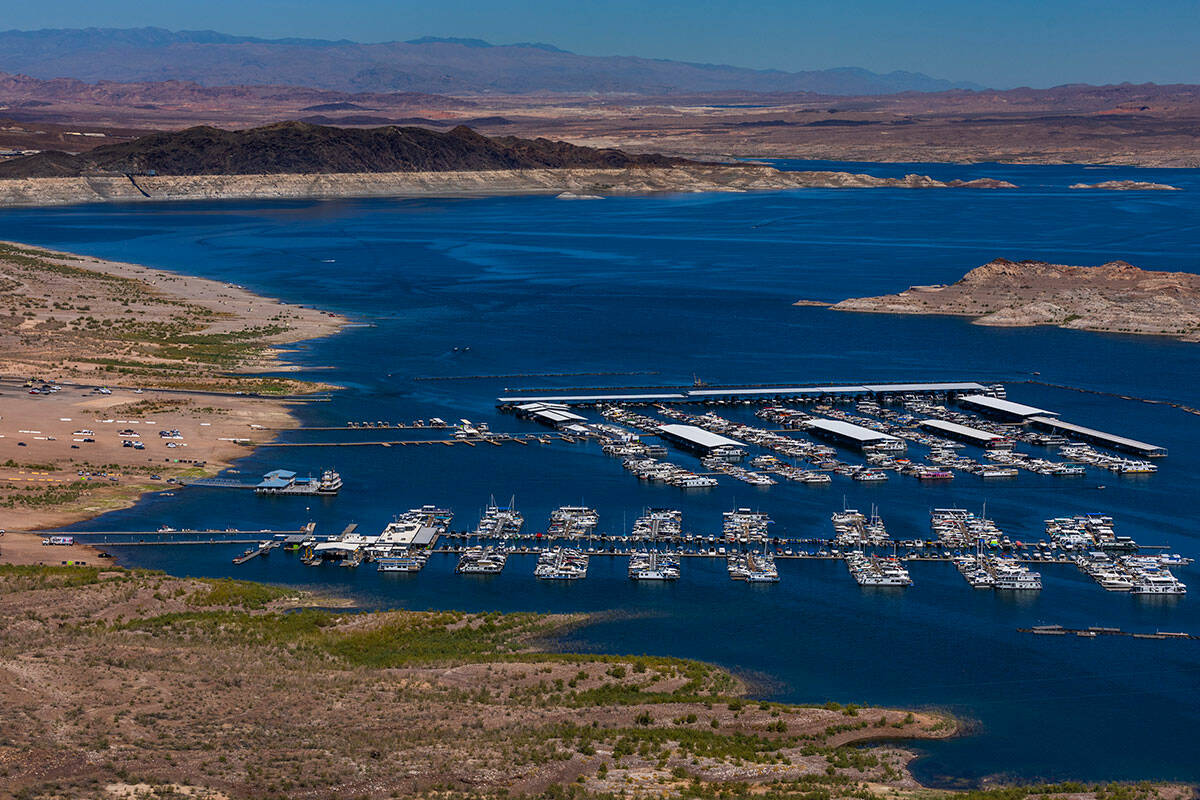Lake Mead will rise 10 feet by 2026, officials say. Here’s why
Five U.S. Bureau of Reclamation conservation agreements targeting California farmers were signed on Wednesday with a big intended impact.
“These ‘bucket one’ agreements celebrated today will collectively add 10 feet to Lake Mead’s elevation by 2026,” Reclamation Commissioner Camille Calimlim Touton said. “Our collaborative efforts are certainly paying off.”
The agreements — involving the Imperial Irrigation District, Bard Water District and the Metropolitan Water District — represent the last conservation efforts from “bucket one,” or the first round, of funding from Congress’ Inflation Reduction Act.
Lake Mead, which provides about 90 percent of Southern Nevada’s drinking water, stands at around 1,063 feet as of September’s end — about 23 feet higher than the reservoir’s all-time low in 2022. Touton has cited aggressive conservation as a direct boost to Lake Mead’s outlook, though two heavy snowpack years in the Rocky Mountains have helped as well.
The Bureau of Reclamation predicts that the agreements will save 717,000 acre-feet of water in total. One acre-foot of water is roughly enough to serve two single-family homes for a year.
Farming, and more specifically alfalfa used to feed cattle, continues to suck up 52 percent of the Colorado River’s water every year, far outpacing commercial or city use. Agricultural producers often hold the most senior water rights, too, meaning that they have legal priority to pump water.
“The Imperial Valley and its farming community, particularly, should set an example for what we need to do going forward,” said Jamie Asbury, general manager of the Imperial Irrigation District, which holds the largest water allocation along the Colorado River. “And the time for inactivity on the river is over.”
To date, the Bureau of Reclamation has signed 25 agreements expected to curb more than 2.28 million acre-feet of water use, part of a larger agreement among the Lower Basin states — California, Nevada and Arizona — to slash water use by three million acre-feet across the Colorado River system.
Contact Alan Halaly at ahalaly@reviewjournal.com. Follow @AlanHalaly on X.






















